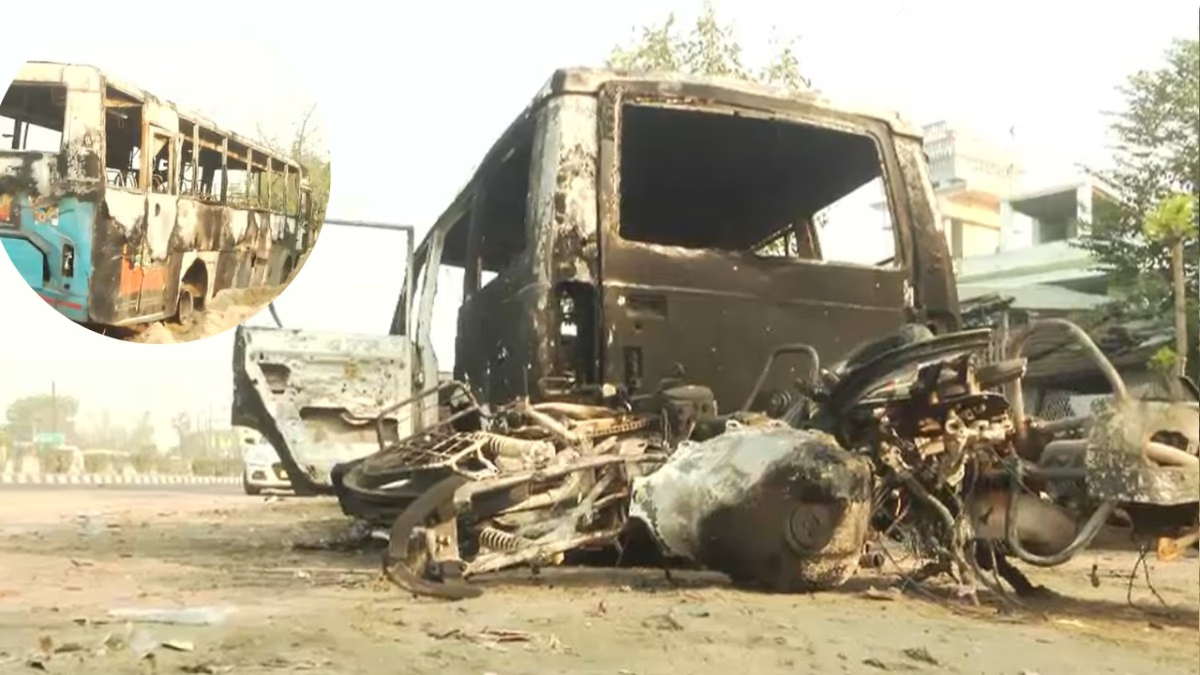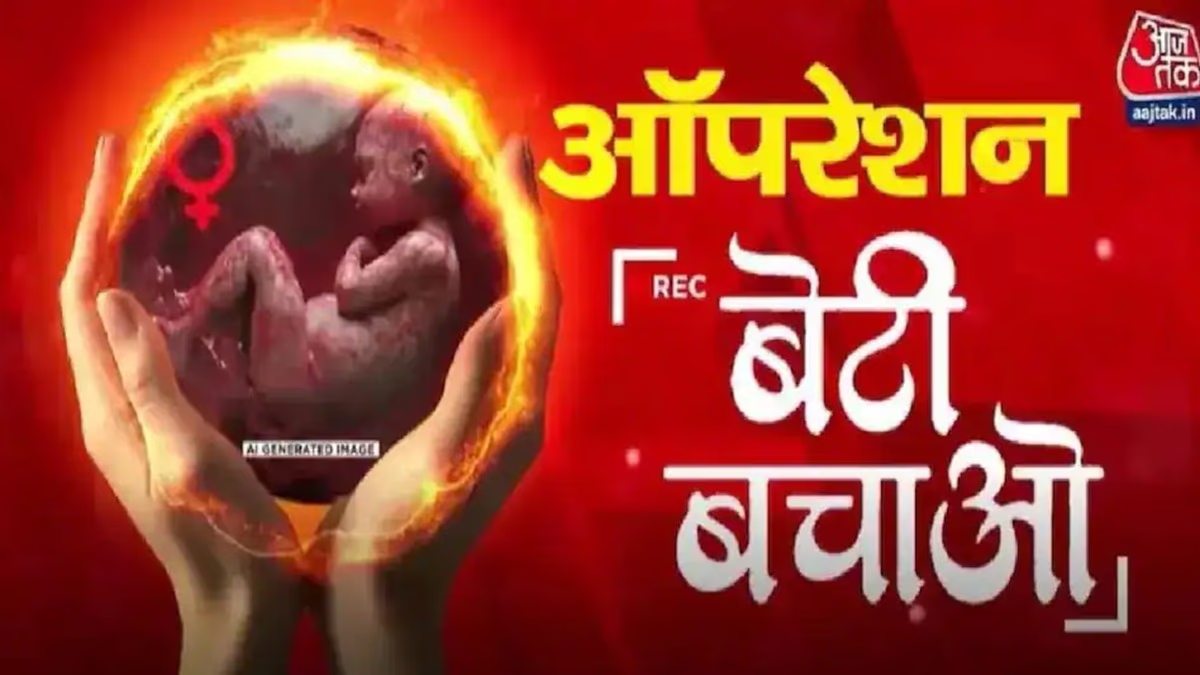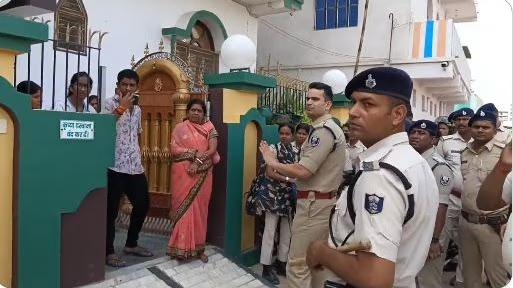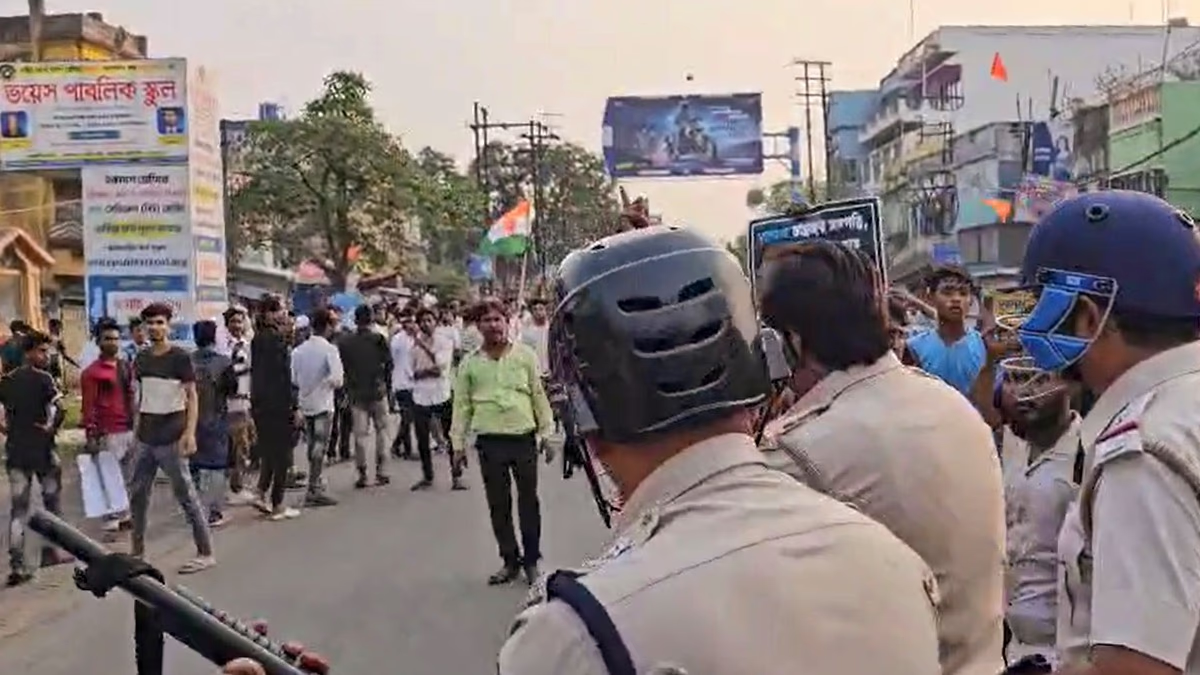The city of Murshidabad in West Bengal was engulfed in violence over the Waqf law once again. On Friday, protests spiraled into chaos as demonstrators blocked trains and hurled stones at police, prompting the deployment of the BSF to control the situation. Markers of violence are widespread; burnt vehicles lay abandoned on the highway, and shops by the roadside bear the marks of attempted arson. This is not the first incident, as similar unrest was witnessed three days prior with clashes against the police, resulting in hours of disruption along National Highway 34.
Violence initially erupted in Suti, after which forces from Jangipur were summoned to restore order. Meanwhile, reports of unrest began emerging from Shamsherganj, approximately 10 kilometers away. Although police were engaged in clearing highway blockades in Suti, they could not reach Shamsherganj, where chaos persisted. It was not until the intervention of the central forces that significant damage was mitigated.
The Arrival of Central Forces Calms the Turbulence
The unrest, which began in the afternoon, continued into the night. Control was only established with the arrival of forces from Malda and Berhampur. The crowd first blocked National Highway 34. As police efforts to clear the blockade sparked stone-pelting, tear gas and baton charges ensued in response. Murshidabad police had faced attacks two days prior, with protesters setting two vehicles on fire. Incidences of severe violence were also noted during the NRC period.
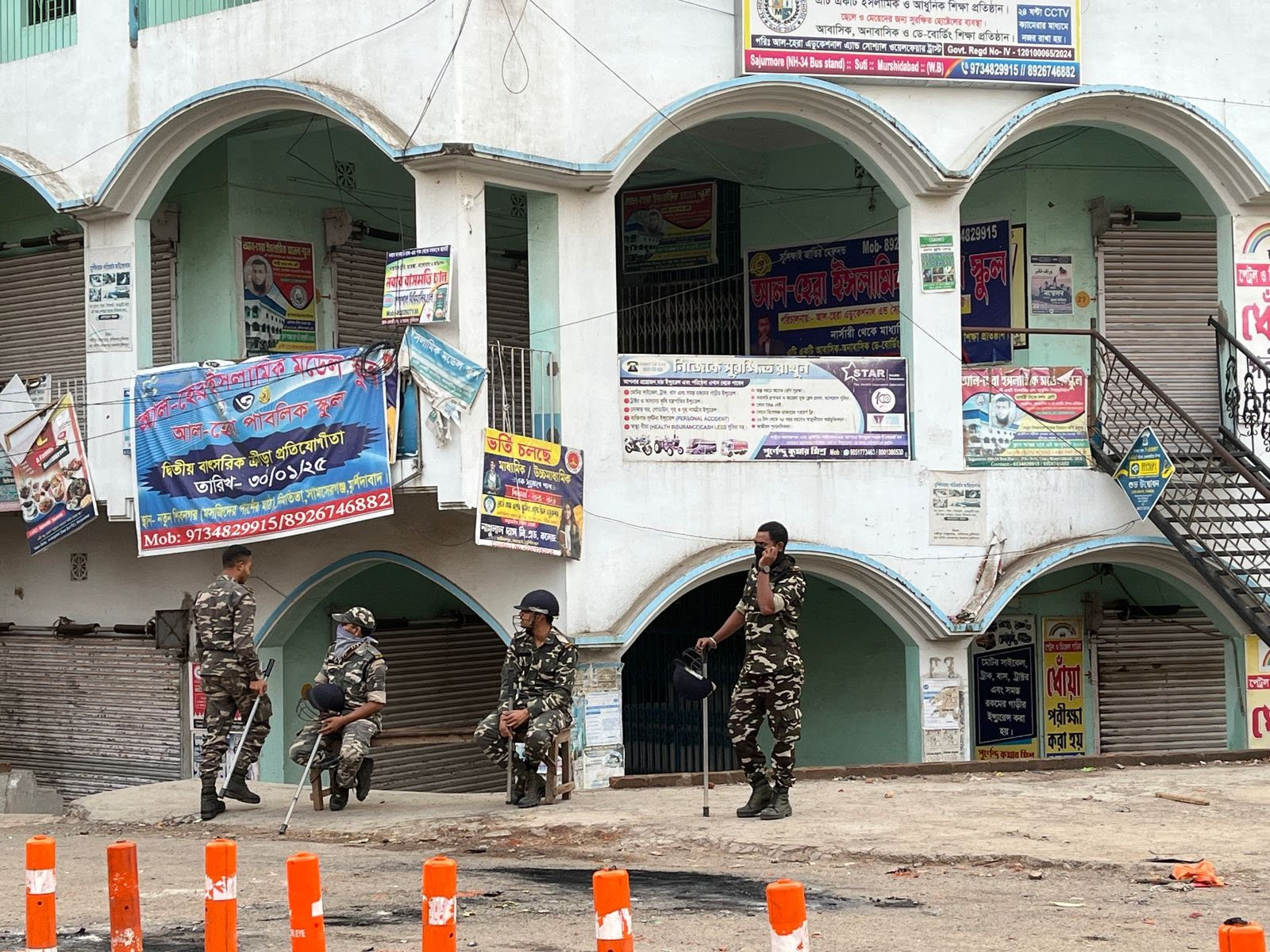
Source: aajtak
Was the Violence Pre-Planned?
Following the Friday prayers, thousands took to the streets in Murshidabad to protest the Waqf bill, subsequently blocking National Highway 34. As police sought to dismantle roadblocks, clashes ensued, mirroring simultaneous escalations in Shamsherganj, 10 kilometers away.
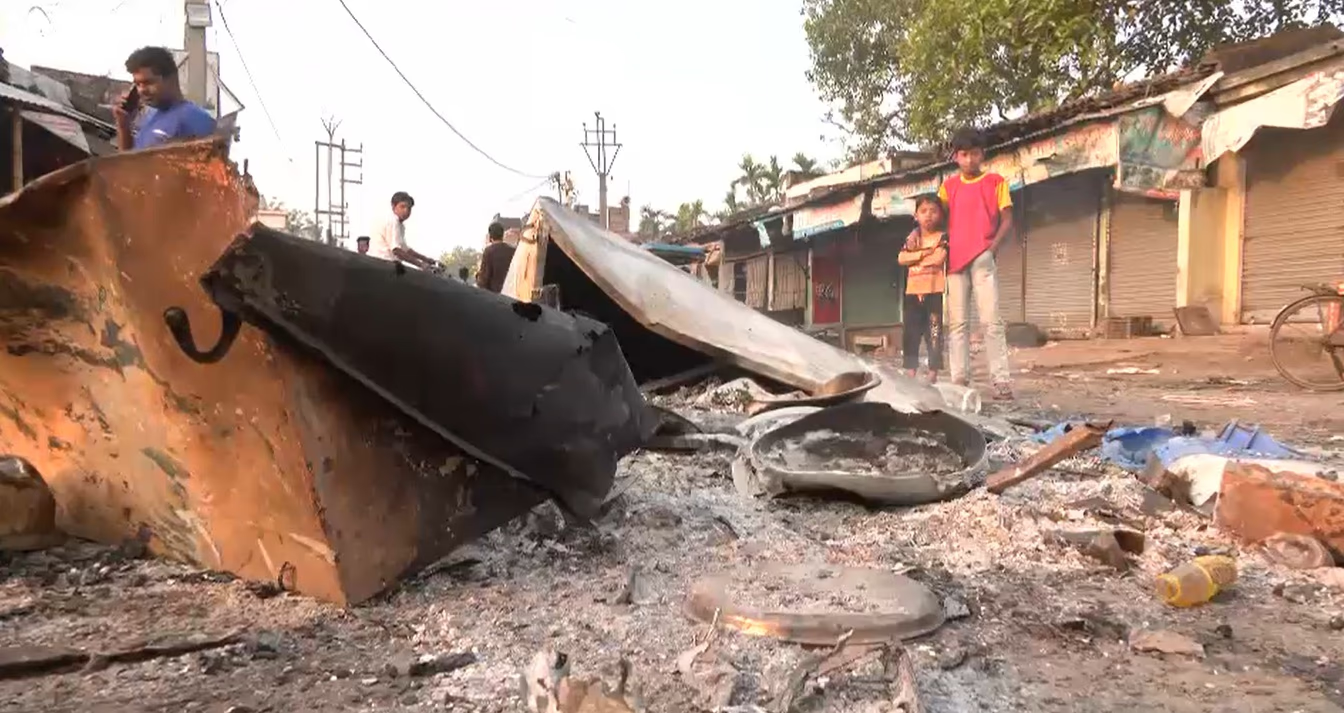
Source: aajtak
In Shamsherganj, protesters wreaked havoc at the Dak Bungalow Mor, targeting police vehicles and setting them ablaze. They targeted a nearby police outpost, vandalized and set it on fire, causing damage to roadside shops and two-wheelers.
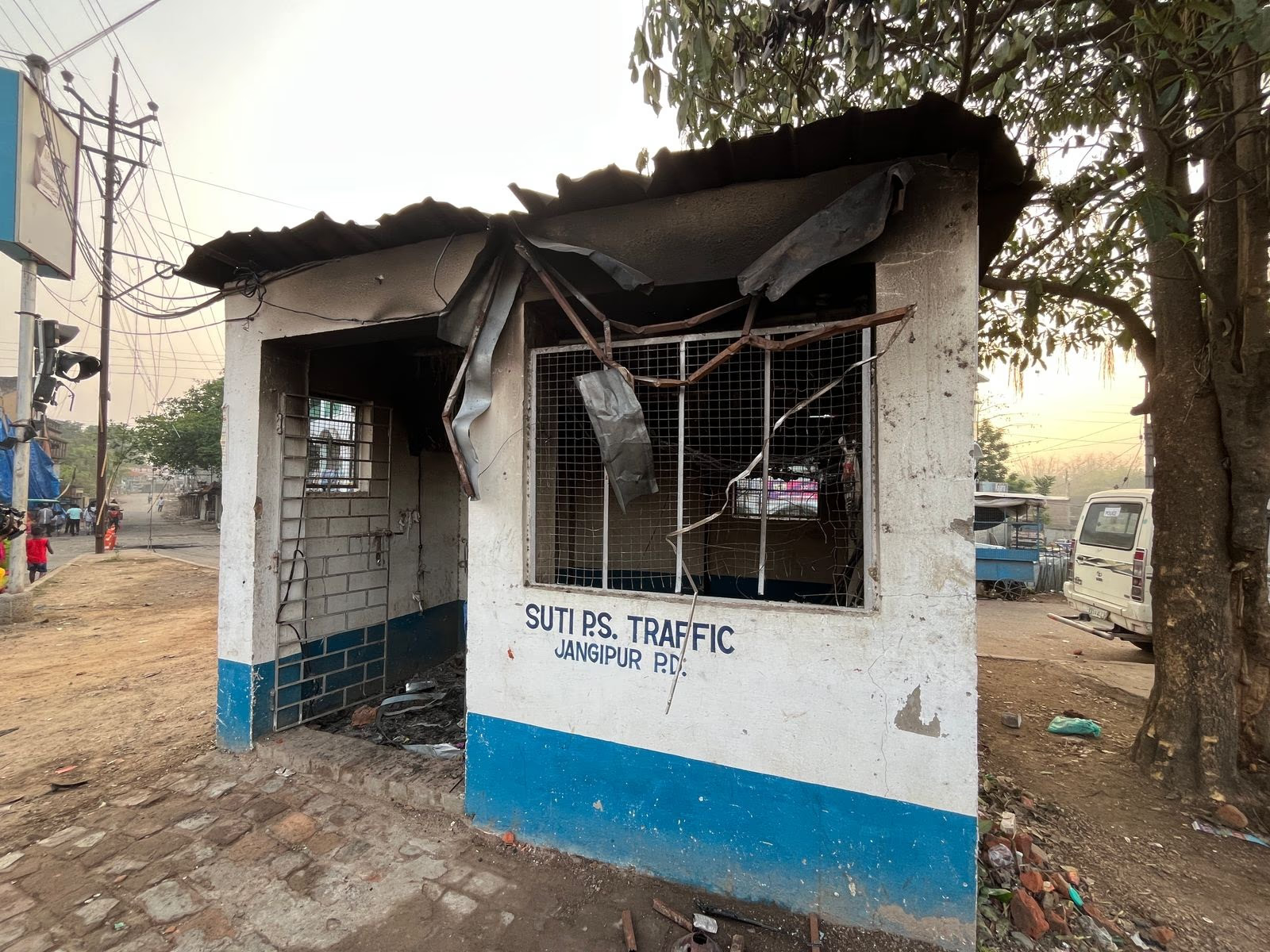
Source: aajtak
Railway Staff Flee for Safety
The raging crowd soon besieged the Dhulian station area, targeting the railway gate and relay room for vandalism and attempted arson. Railway staffers narrowly escaped harm, aided by the arrival of police and central forces that finally quelled the disturbances. Although the violence has subsided for now, tension lingers in the affected areas.
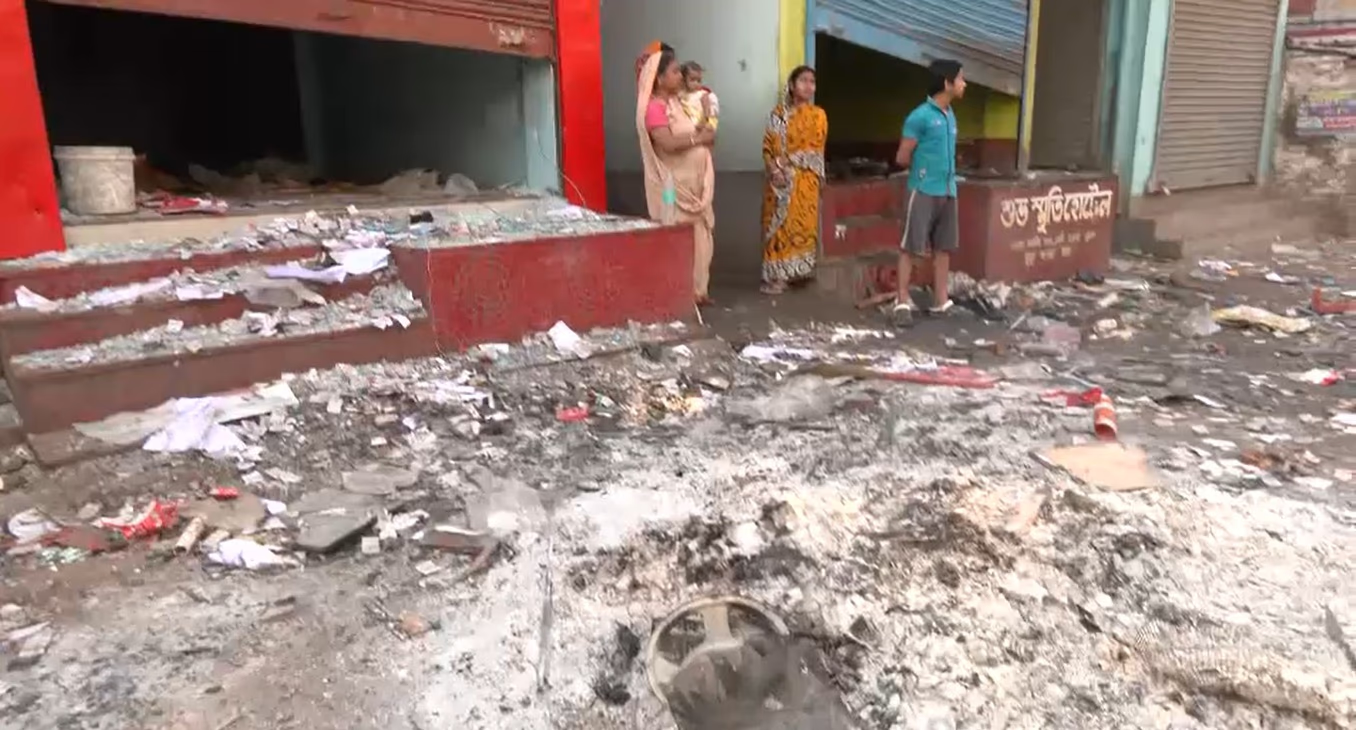
Source: aajtak
Crowd Assaults Police Van, Injuring Officers
Locals recount how, post-prayer, a large crowd took a stand against the Waqf law. A police van passing through faced the wrath of the demonstrators, who pelted it with stones, injuring several officers. Consequently, in Suti region, ten police officers were injured amid the uproar, and numerous vehicles were set ablaze, with National Highway 12 also blocked by the protesters.
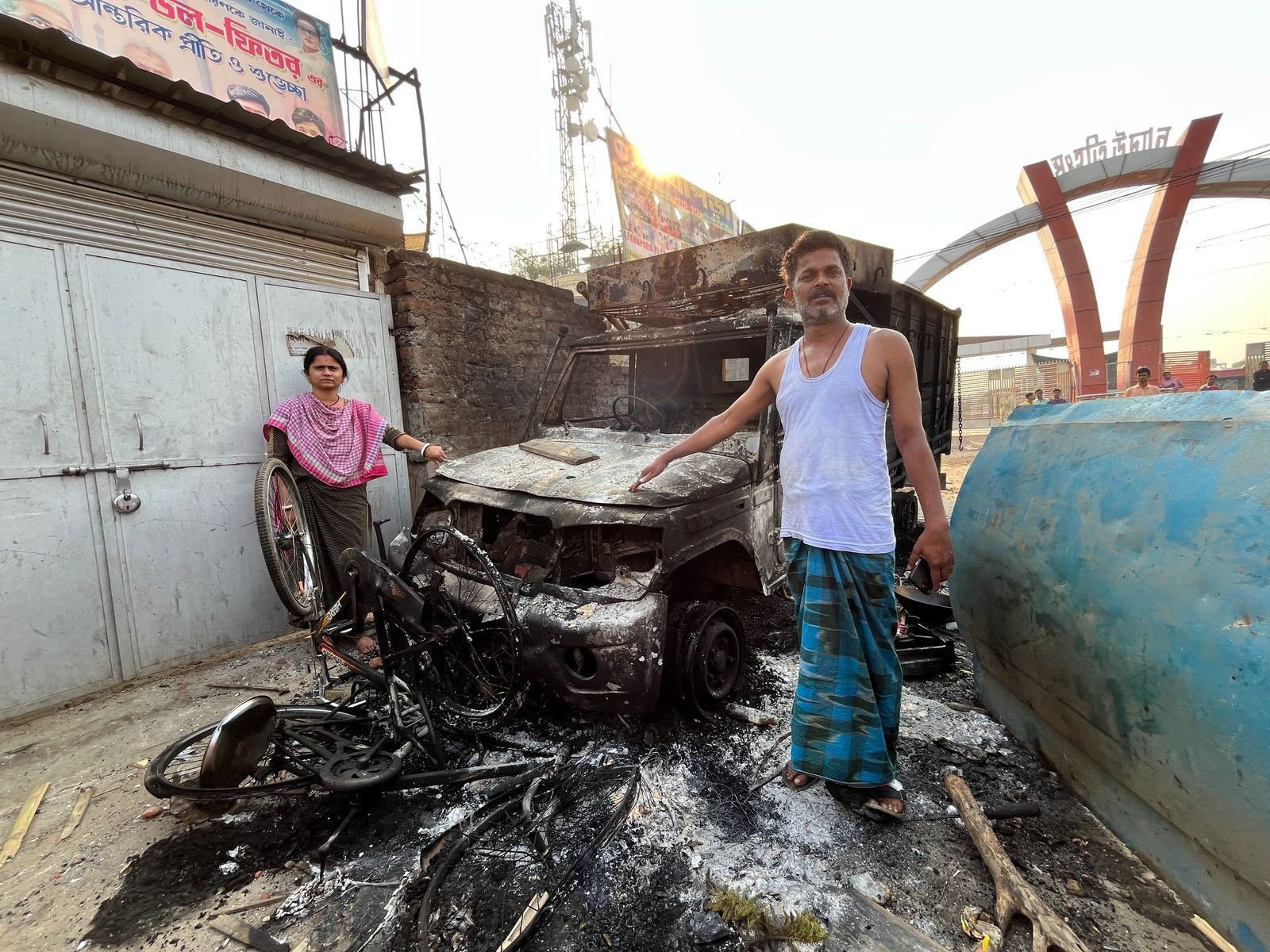
Source: aajtak
Ambulance Burned, Driver Assaulted
The fury did not spare ambulances during the protests in Murshidabad. One returning from Jalpaiguri after delivering a patient fell prey to the chaos, as its driver suffered a brutal assault and the vehicle was set ablaze. Another ambulance faced similar brutality, being vandalized and destroyed. A bus also met the same dire fate at the hands of the protestors.
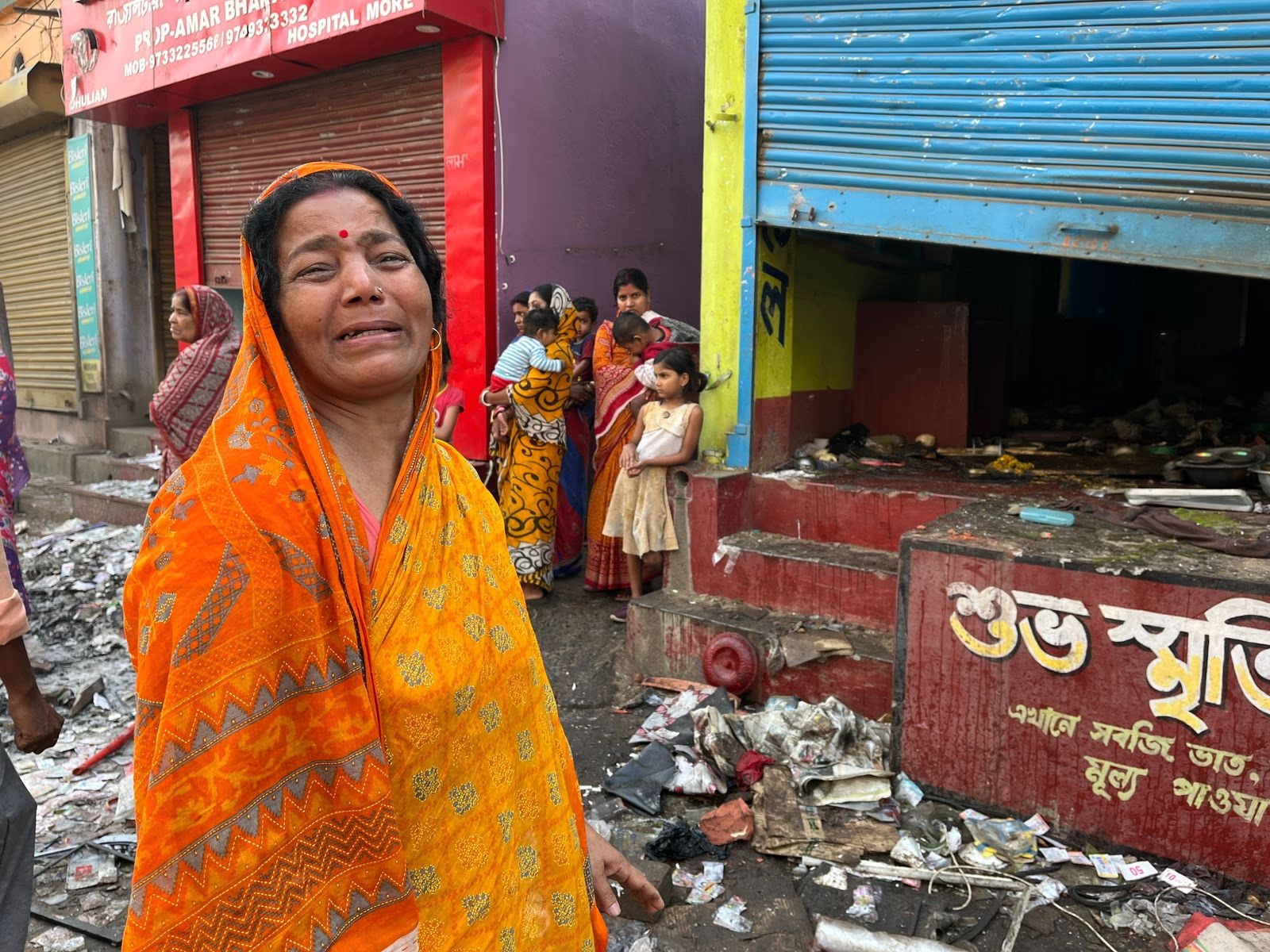
Source: aajtak
Hindu Families Targeted in Shamsherganj?
In a startling development, Hindu households in Shamsherganj were reportedly targeted by protestors. Affected families recounted losing businesses and shops, as their premises came under attack without police intervention. Vandals struck just 500 meters from the Shamsherganj police station, leaving residents in distress.
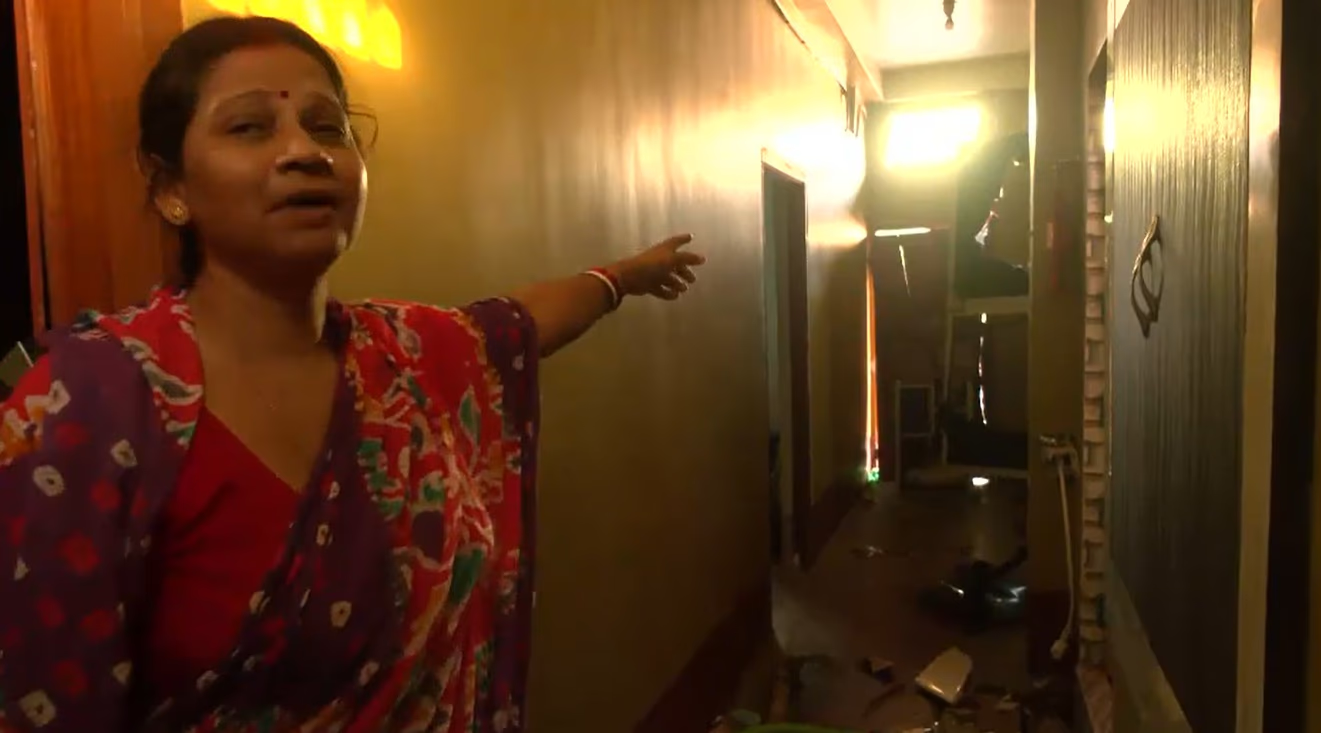
Source: aajtak
Manju Bhagat, a victim, narrated her ordeal where attackers breached her home, destroying property, and leaving her family traumatized. Her daughter's safety was at risk during the turmoil. Despite their calls for emergency aid, the police arrived too late to prevent the attackers from causing complete destruction.
